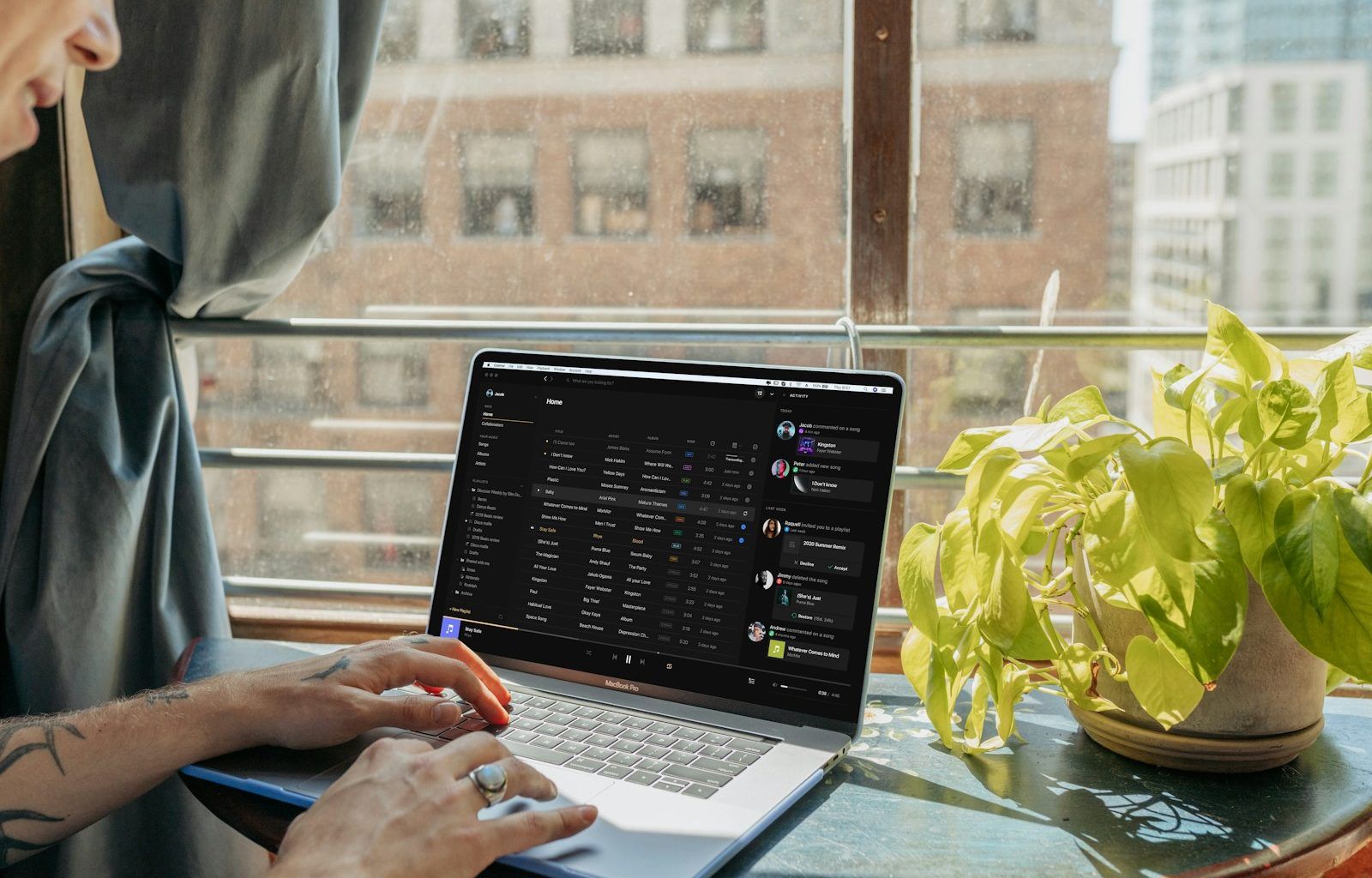Music has the power to inspire, heal, and entertain, but did you know it can also be a reliable source of income? If you’re passionate about music and want to make a living from it, there are countless opportunities waiting for you. Whether you’re a performer, teacher, composer, or enthusiast, there’s a path to financial success in the music industry. In this blog, we’ll explore how to earn money through music and turn your passion into a sustainable career.
1. Start with Your Strengths
Every musician has unique strengths. Maybe you’re great at playing an instrument, or perhaps your voice is your most powerful asset. Start by identifying what you’re best at because that’s where you’ll find the most opportunities to earn. For instance, if you’re a skilled guitarist, you can offer lessons, perform at events, or even create online content to teach others.
Focus on honing your craft. The more skilled you are, the easier it becomes to stand out in the competitive music world. Once you’ve established your niche, you can start exploring ways to monetize it.
2. Teach Music
One of the easiest ways to earn money through music is by teaching it. You don’t have to be a superstar to teach; you just need enough knowledge and a passion for sharing it. Teaching can take many forms:
- Private Lessons: Teach students one-on-one in person or online.
- Group Classes: Host classes for beginners or specific age groups.
- Workshops: Organize short-term courses for those who want to learn quickly.
Platforms like Zoom and Google Meet make it simple to teach online, while apps like Lessonface and TakeLessons connect you with students worldwide. Teaching is not only a great source of income but also a rewarding way to pass on your love for music.
3. Perform Live
Live performances are a classic way to earn money through music. Whether it’s at weddings, bars, cafes, or corporate events, live gigs can be both fun and lucrative. Start small by performing locally, and as you build confidence and an audience, aim for larger venues.
Here are some tips for landing gigs:
- Build a professional portfolio, including videos of your performances.
- Network with event organizers, venue managers, and other musicians.
- Use social media to promote your music and reach potential clients.
Live performances not only bring in income but also help you grow your fan base. Plus, they’re a fantastic way to showcase your talent and get noticed.
4. Sell Your Music Online
The digital age has made it easier than ever to sell your music. Platforms like Spotify, Apple Music, Bandcamp, and YouTube allow artists to reach a global audience. Here’s how you can earn through these platforms:
- Streaming Royalties: Upload your music to streaming services and earn money every time someone listens.
- Digital Downloads: Sell your songs or albums on platforms like Bandcamp or your own website.
- Merchandise: Offer physical copies of your music, like CDs or vinyl records, along with branded merchandise.
Don’t forget to promote your music actively. Use social media, email newsletters, and collaborations to draw attention to your releases.
5. Licensing Your Music
Licensing is a goldmine for musicians who create original compositions. By licensing your music, you allow others to use it in movies, TV shows, advertisements, or video games in exchange for payment. Here’s how to get started:
- Music Libraries: Submit your tracks to platforms like AudioJungle, Pond5, or Epidemic Sound.
- Networking: Reach out to filmmakers, content creators, and advertising agencies.
- Performance Royalties: Register your music with a performing rights organization (PRO) like ASCAP, BMI, or PRS to collect royalties whenever your music is played publicly.
Licensing can provide a steady stream of passive income, making it one of the most efficient ways to earn money through music.
Social media platforms like TikTok, Instagram, and YouTube are brimming with opportunities for musicians. By creating engaging content, you can build a loyal following and monetize your music. Here are some ideas:
- Post covers of popular songs.
- Share snippets of your original work.
- Offer behind-the-scenes glimpses of your creative process.
- Engage with your audience through live sessions.
Once you have a significant following, you can earn money through ads, sponsorships, and fan support via platforms like Patreon or Buy Me a Coffee.
7. Collaborate with Other Artists
Collaboration is a powerful tool for earning money and growing your audience. Partner with other musicians, producers, or creators to create something unique. Collaborative projects can include:
- Joint performances or tours.
- Collaborative albums or singles.
- Cross-promotion on social media.
Collaborations often open doors to new audiences and can lead to more income opportunities.
8. Produce Music for Others
If you have the technical know-how, producing music for other artists can be a lucrative option. Many aspiring musicians and content creators need help bringing their ideas to life. You can offer services like:
- Recording and mixing tracks.
- Creating beats or instrumentals.
- Composing jingles for businesses.
Invest in good equipment and software, and build a strong portfolio to showcase your skills.
9. Join a Band or Ensemble
Being part of a band or ensemble can multiply your earning potential. Bands often get paid gigs at events, festivals, and even international tours. Plus, you can split the workload and share expenses, making it easier to manage the business side of music.
Start by finding like-minded musicians who share your vision. Practice regularly, create a brand for your group, and actively seek performance opportunities.
10. Use Crowdfunding
Crowdfunding platforms like Kickstarter, Indiegogo, and Patreon allow musicians to fund their projects directly through their fans. Whether you’re launching an album, a music video, or a tour, crowdfunding can be a game-changer.
To run a successful campaign:
- Offer enticing rewards for backers, like exclusive content or merchandise.
- Promote your campaign heavily on social media.
- Share your story and why your project matters.
Crowdfunding not only helps you raise money but also deepens your connection with fans.
11. Explore Sync Licensing Opportunities
Sync licensing involves placing your music in films, TV shows, commercials, and video games. This can be highly profitable for musicians who know how to create tracks that suit visual media.
Here’s how to get started:
- Research the type of music used in the projects you’re targeting.
- Work with music supervisors who connect artists with projects.
- Register your music with sync agencies or platforms.
Sync licensing is an excellent way to earn passive income while gaining exposure.
12. Leverage Music Competitions
Music competitions can be an exciting way to earn money and gain recognition. Many competitions offer cash prizes, scholarships, or recording contracts. Even if you don’t win, participating can provide valuable exposure and networking opportunities.
Look for competitions that align with your genre and skill level. Prepare thoroughly and use them as a stepping stone to bigger opportunities.
13. Build an Online Course
If you’re experienced in a particular area of music, consider creating an online course. Platforms like Udemy, Skillshare, and Teachable make it easy to design and sell courses. You can teach anything from beginner piano lessons to advanced music production techniques.
Creating a course requires effort upfront, but once it’s live, it can become a source of passive income.
14. Offer Music Therapy Services
Music therapy is a growing field that combines music with mental and physical health. If you have a background in therapy or psychology, you can earn money by offering music therapy sessions. These can be conducted for individuals, groups, or institutions like schools and hospitals.
To get started, consider getting certified as a music therapist and connecting with local organizations that may need your services.
By now, you can see that there are countless ways to earn money through music. It takes creativity, persistence, and a willingness to adapt, but with dedication, you can turn your passion into a profitable career. Whether you choose to teach, perform, produce, or explore digital platforms, the key is to stay consistent and keep learning. Start with one or two methods, and as you grow, explore other opportunities to expand your income streams.
For further reading, explore these related articles:
- What is the Difference Between Reverb and Echo?
- Best Free Song Streaming Sites Listen to Music Without Spending a Rupee
For additional resources on music marketing and distribution, visit DMT Records Pvt. Ltd..






